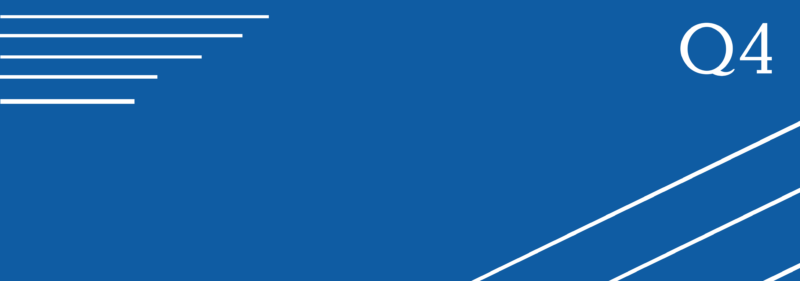A note from our CEO:
2020 has brought with it unprecedented change. In this time of stress and uncertainty, I hope you and your families are safe and healthy.
While we adapt as best we can, disruption and distractions are inevitable. Sometimes, however, changes can be seen in advance of the impact. This can be said regarding the impact of the SEC’s 13F proposal on corporate issuers, and the implications of this issue to you, our customers, are meaningful and will likely change how you do your job as an IRO.
The recent SEC proposal: Reporting Threshold for Institutional Investment Managers, Release No. 34-89290; File No. S7-08-20, or the 13F proposal as you may know it, would exempt 4,500 (89% of current 13F filers) from disclosure, including many hedge funds and active money managers who would fall under the proposed $3.5 billion threshold. In today’s market where many of the largest shareholder positions are held by passive ETF managers, a reduction in visibility of active investment management is not in your best interest.
We’ve spoken to many of you, and agree that the proposed amendment would reduce transparency around holdings, increase the risk of activism, undermine issuer-investor engagement, and negatively impact our customer’s ability to effectively identify attractive potential investors.
First and foremost, I want to tell you that Q4 supports you. We’re with you in expressing disappointment and concern over the potential implications of this proposal to the SEC. Our comment letter, which can be found here, presents many of the same concerns that the NIRI joint comment letter includes. I urge you to get involved and consider adding your name to the long list already there.
Our mission is to provide IR teams with best-in-class tools and services that help you achieve success in the capital markets. Anything that impedes your path to success is one we take issue with. Understanding the composition of your shareholder base, the ownership trends of shareholders requesting executive meetings, and the investors most likely to become new shareholders, are activities deeply embedded in every IR program. All Q4 clients would be impacted by this proposal. The average percentage of outstanding shares that would be affected is 12%, with a maximum of 52%. For those at the upper end of this range, it effectively removes the issuer’s ability to identify and confirm ownership of more than half of their shareholders. We consider this significant loss of visibility as a material step backward in market transparency, an initiative explicitly mentioned in the Dodd-Frank Act, and one the SEC has historically sought.
We embrace change and are often the catalyst behind that change when it is a driver of progress. However, in this case, the proposed change is wrong. It’s not in your best interest. Proponents of this change would tell you that 13F reporting places undue financial burden on “small investors”. We do not agree. We believe the burden is negligible, and a cost of doing business. Transparency is far more important than any argument made for this proposal. We are not supportive of change that makes you less effective, provides less transparency, and creates more uncertainty in a time where we have more than enough to conquer. Stay strong and stick together. We’re with you on this.
Regards,
Darrell Heaps
Founder and CEO, Q4 Inc.
For more resources, or to add your company name to the NIRI joint comment letter, please visit this Call to Action.


